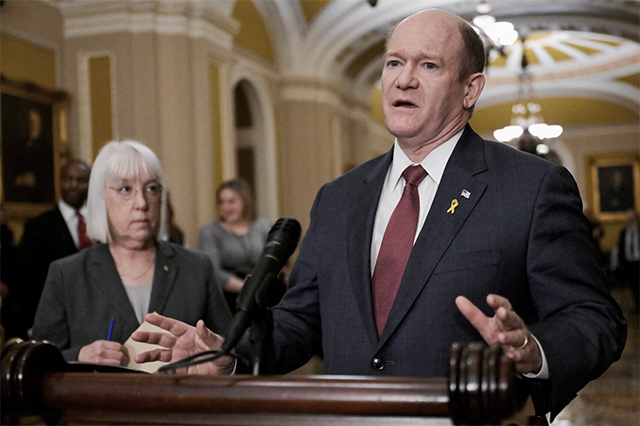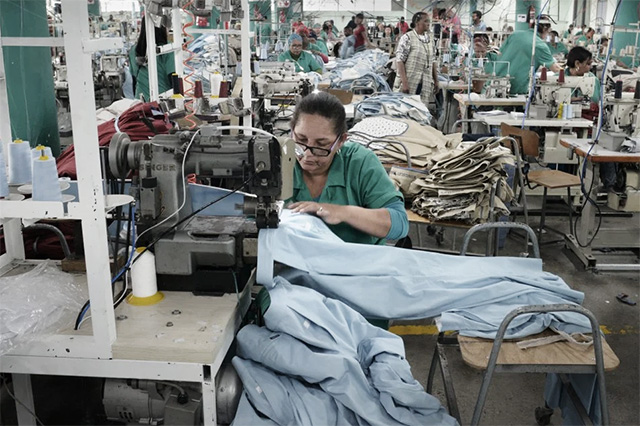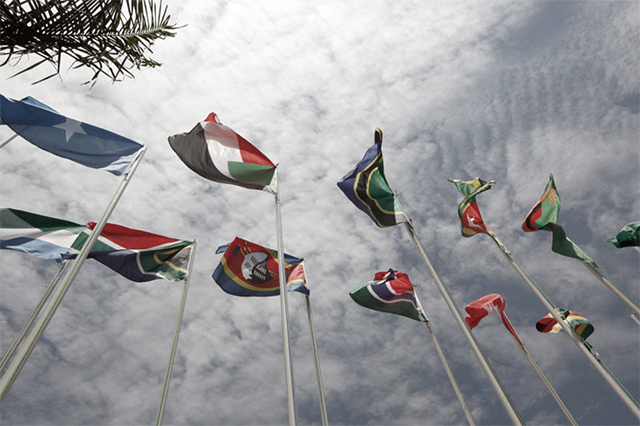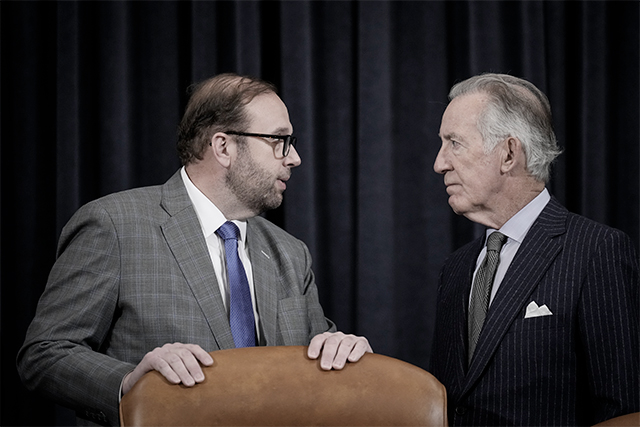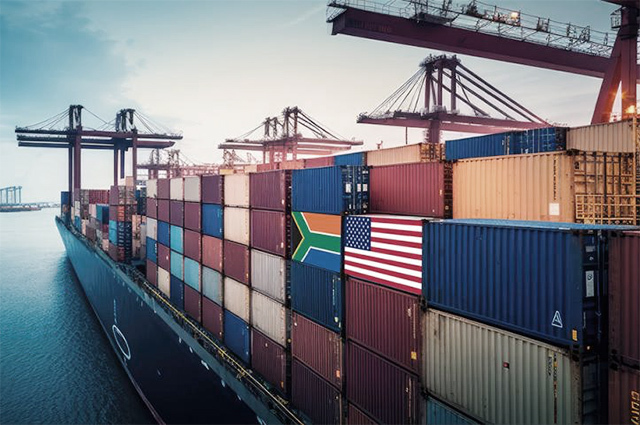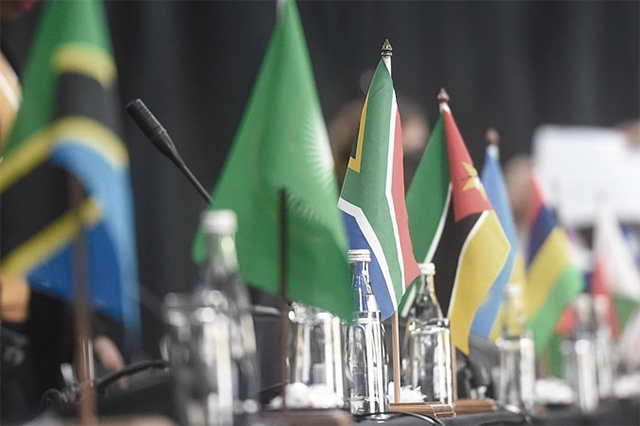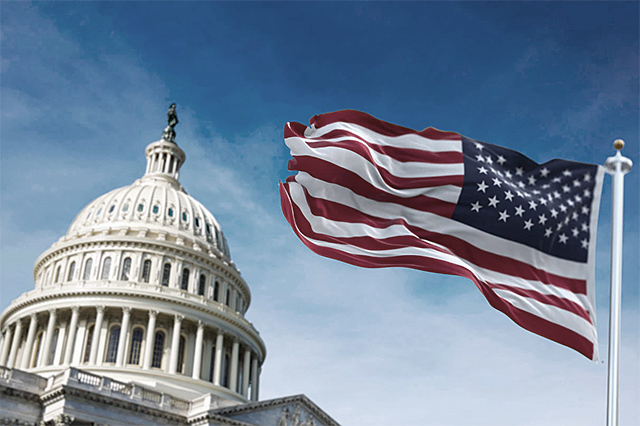Blog: 'It’s Time for AGOA 2.0'
The African Growth and Opportunity Act (AGOA) is set to expire in 2025.
That may be the distant future for some but given the time required to pass trade legislation in the U.S. Congress, it’s the functional equivalent of tomorrow’s mid-day meal.
Preparation for the post-AGOA trade relationship between the U.S. and Africa needs to begin now.
AGOA has had important successes but improvements need to be made to the program. The legislation, which removed all tariffs on 6,400 products available for export to the U.S., helped to move the U.S.-African relationship from aid to trade, from donor-recipient to one of mutual benefit and gain.
In return, the U.S. required only that the nearly 40 participating African countries be making progress on economic and political reforms and pose no threat to U.S. national security. These conditions constituted a low bar as the number of AGOA countries has been relatively stable since the legislation went into effect in 2000.
In terms of promoting exports to the U.S., AGOA has had measured success. Some countries, such as South Africa, have benefitted significantly. South Africa’s auto exports to the U.S. under AGOA have created tens of thousands of jobs in that country and in the auto supply chain in neighboring countries.
Apparel exports from other countries, such as Lesotho, Ethiopia, Mauritius, eSwatini and Kenya have also created a similar number of jobs. These apparel exports are important not only for the jobs created but for the labels that say Made in Mauritius, Made in Lesotho and Made in Kenya, for example.
When apparel from AGOA exporting countries are found by American consumers in their favorite stores next to clothing from Canada and Mexico, not to mention China, they begin to think about African nations as reliable and cost-effective suppliers to American households.
AGOA’s shortcoming is that not enough African countries have benefitted on a scale that genuinely moves the needle when it comes to job creation, exports of apparel and how Americans perceive the continent. The call by Congress in 2015 for all AGOA beneficiaries to develop export strategies to take advantage of the program has borne little fruit as barely half of AGOA countries have created such strategies.
Yet other important benefits have been generated by AGOA. It put trade and investment at the center of the U.S.-African relationship which the Trump administration is trying to deepen through its Prosper Africa initiative. Passage of the legislation also created an enduring bipartisan consensus between Democrats and Republicans in Congress based on the recognition that the U.S. has interests in Africa worth investing in.
This bipartisan consensus funded the President’s Emergency Plan for AIDS Relief (PEPFAR), the creation of the Millennium Challenge Corporation and most recently led to the establishment of $60 billion U.S. Development Finance Corporation, in addition to a host of other programs. In short, AGOA is the cornerstone of the U.S.-African relationship.
The principal challenge to AGOA, apart from the fact that only a small number of nations have taken advantage of the legislation, are the dramatic changes that have occurred in Africa in the twenty years since President Clinton signed the law into effect.
The region has become home to half of the world’s twenty fastest growing economies and a middle class in the tens of millions. The African Continental Free Trade Agreement (AfCTA) is poised to significantly increase intra-regional trade. In addition, China has overtaken the U.S. as the continent’s leading trade partner, the European Union is implementing Economic Partnership Agreements (EPAs) across the continent and countries such as Turkey, India and Russia have become significant commercial actors on the continent.
It is time therefore to update the AGOA framework. Most specifically, reciprocity needs to replace the non-reciprocal structure of the current trade relationship. AGOA 2.0 also needs to be developed in a manner consistent with the implementation of the AfCFTA.
AGOA’s benefits should be extended past 2025 as long as agreement has been reached on the phase-in of mutually reciprocal trade benefits. The phase-in periods should be different for Africa’s low income, lower-middle income and upper-middle income countries.
Revising the AGOA framework should be a priority in the U.S.-African relationship as U.S. goods and services are being increasingly discriminated against in Africa—at a time when the commercial relationship should be deepening.
Given the EPAs, for example, a refrigerator or tractor being exported from an EU country will enter the South African market with a 4.5 percent tariff. That same refrigerator or tractor coming from the U.S. will face a 18.4 percent tariff. Not only does this stifle the U.S.-African commercial relationship but it also discriminates against African consumers and companies who will automatically find American products to be more expensive.
The task of AGOA 2.0 therefore is not only to level the commercial playing field for U.S. goods and services in Africa but to do it in such a way that it facilitates the implementation of AfCFTA. Negotiations for a modernized AGOA framework should be well underway by the time of the next U.S.-Africa trade ministerial to be held in Washington in 2020.
At the same time, the Trump administration should jettison its time-consuming and unproductive effort to find a single African government with whom to negotiate a “model” free trade agreement and double down on its welcome endorsement of the African Continental Free Trade Agreement. Supporting the implementation of the AfCFTA and ensuring American competitiveness in all of Africa’s markets is the most immediate and important U.S. commercial objective in the region.






